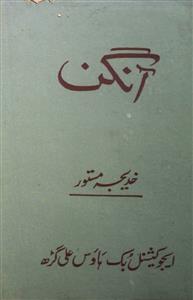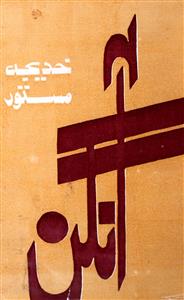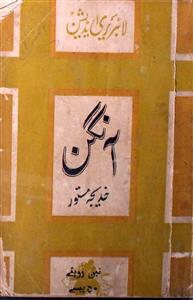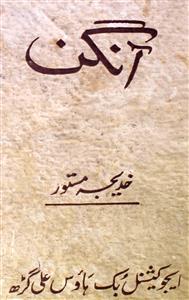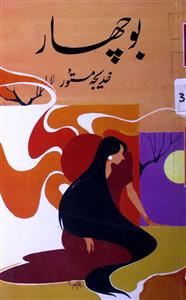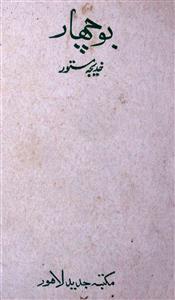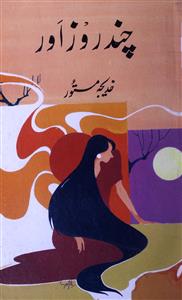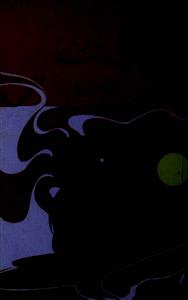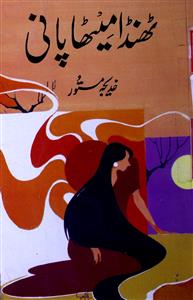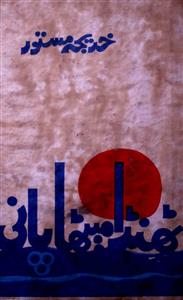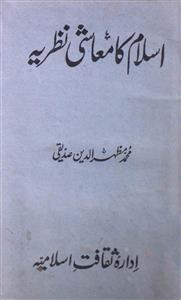 For any query/comment related to this ebook, please contact us at haidar.ali@rekhta.org
For any query/comment related to this ebook, please contact us at haidar.ali@rekhta.org
About The Author
Khadija Mastoor is one of those female Urdu novelists who raised the artistic standard of novel writing and enhanced its profundity through her creative intelligence and artistic dexterity. She is most well-remembered for her highly acclaimed novel ‘Angan’, which is hailed as a masterpiece. In ‘Angan’, she didn’t only formally present the experiences of life but also gave them extraordinary breadth and height through her creative prowess and deep insight. In her novel, Khadija Mastoor excels in storytelling. She describes events in such a way that the political and social scene related to her is self-evident. Her stories usually revolve around the issues of the middle-class and are neither symbolic nor mere narrative, but a blend of both which is a special distinction of her stories. Her themes are based on broad and social values that have a political and moral background. Khadija had no formal training or model in front of her, she only knew how to present an aspect in an artistic way, innately.
Khadija Mastoor was born on December 11, 1827 in Bareilly district of Uttar Pradesh. Her father, Tahawwur Ahmad Khan, was a doctor by profession and a government employee who was transferred every now and then. This also affected Khadeeja’s education. But her mother was an educated and enlightened woman who also had a passion for writing and her articles were published in women's magazines. Thus, the home environment was literary. Khadija Mastoor and her younger sister Hajra Masroor also became interested in writing stories from an early age. Her stories started appearing in children's magazines of that time which encouraged her. Then when she grew up her stories were published in distinguished literary magazines like Saqi, Adabi Duniya and Aam-Gir, which gave her a distinct identity. In 1944, the stories of Khadija Mastoor and Hajra Masroor were published together in the same issue of "Saqi". Khadija Mastoor's father died when the two sisters were young so there was financial hardship in the house. She stayed in Bombay for some time and then after the formation of Pakistan she moved there in a state of extreme helplessness where she was lent a helping hand by Ahmad Nadeem Qasmi. In 1950 she married Qasmi's nephew Zaheer Babar Awan who was a journalist. She had a successful marriage with Zaheer Babar and continued contributing to Urdu literature with her writings all her life. She died of a heart attack in London on July 26, 1982 and was buried in Lahore.
Five collections of her short-stories have been published so far which include, “Khel’’ (1944), Bauchhar" (1946), "Chand Roz Aur" (1951), "Thake Haare" (1962), and "Thanda Mitha Pani" (1981). But she got marked fame from her novel Aangan, which is considered as one of the best novels in Urdu. This novel became her very identity. Daisy Rockwell has translated this novel into English which has been classified as a classic by Penguin. The novel has also been adapted into a TV serial in Pakistan. In 1962, Khadija was awarded the prestigious Adam G Award for it. Uslub Ahmad Ansari counts Aangan among the 15 best novels in Urdu while Shamsur Rehman Farooqi says that this novel deserves more attention than it has received so far.
Khadija Mastoor very skilfully points out the complexities of life, she excels at reaching extraordinary events through ordinary events. She was not associated with any literary movement. All of her characters appear with their own intellectual complexities, psychological tensions and passions, not idealism or imagination. She uses frank and everyday language. Unlike Asmat Chughtai or Wajda Tabassum, she did not allow any stigma to be left on her writings.
 For any query/comment related to this ebook, please contact us at haidar.ali@rekhta.org
For any query/comment related to this ebook, please contact us at haidar.ali@rekhta.org

